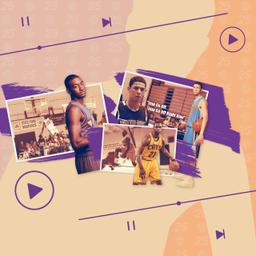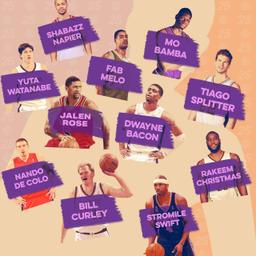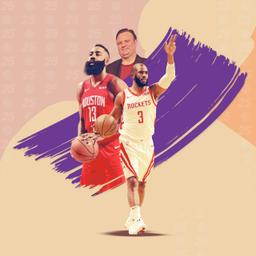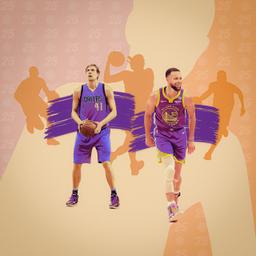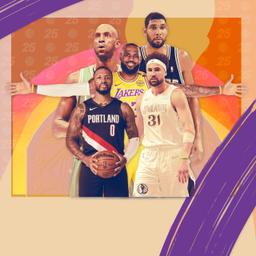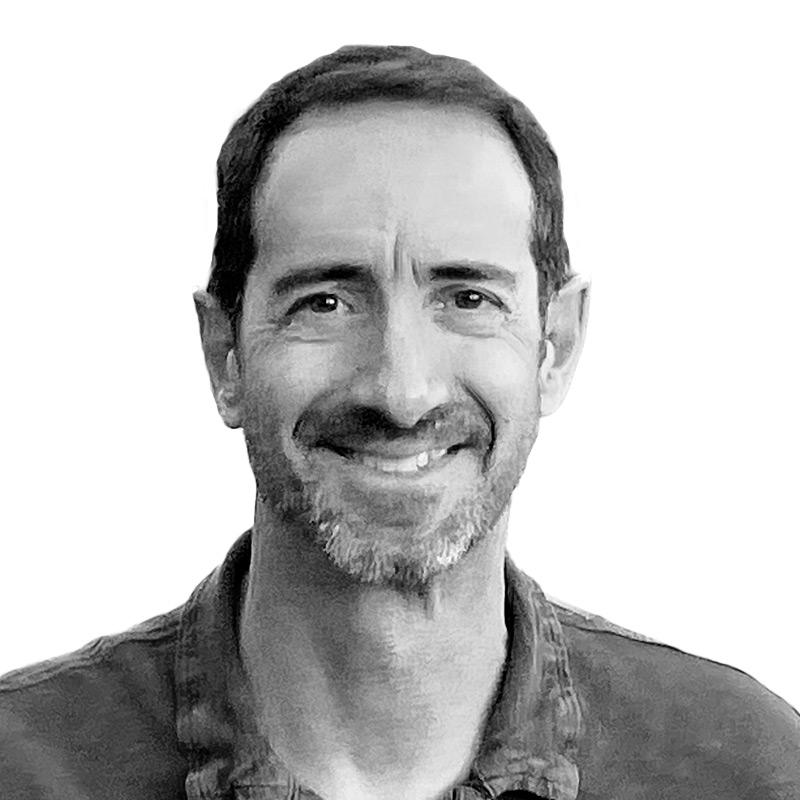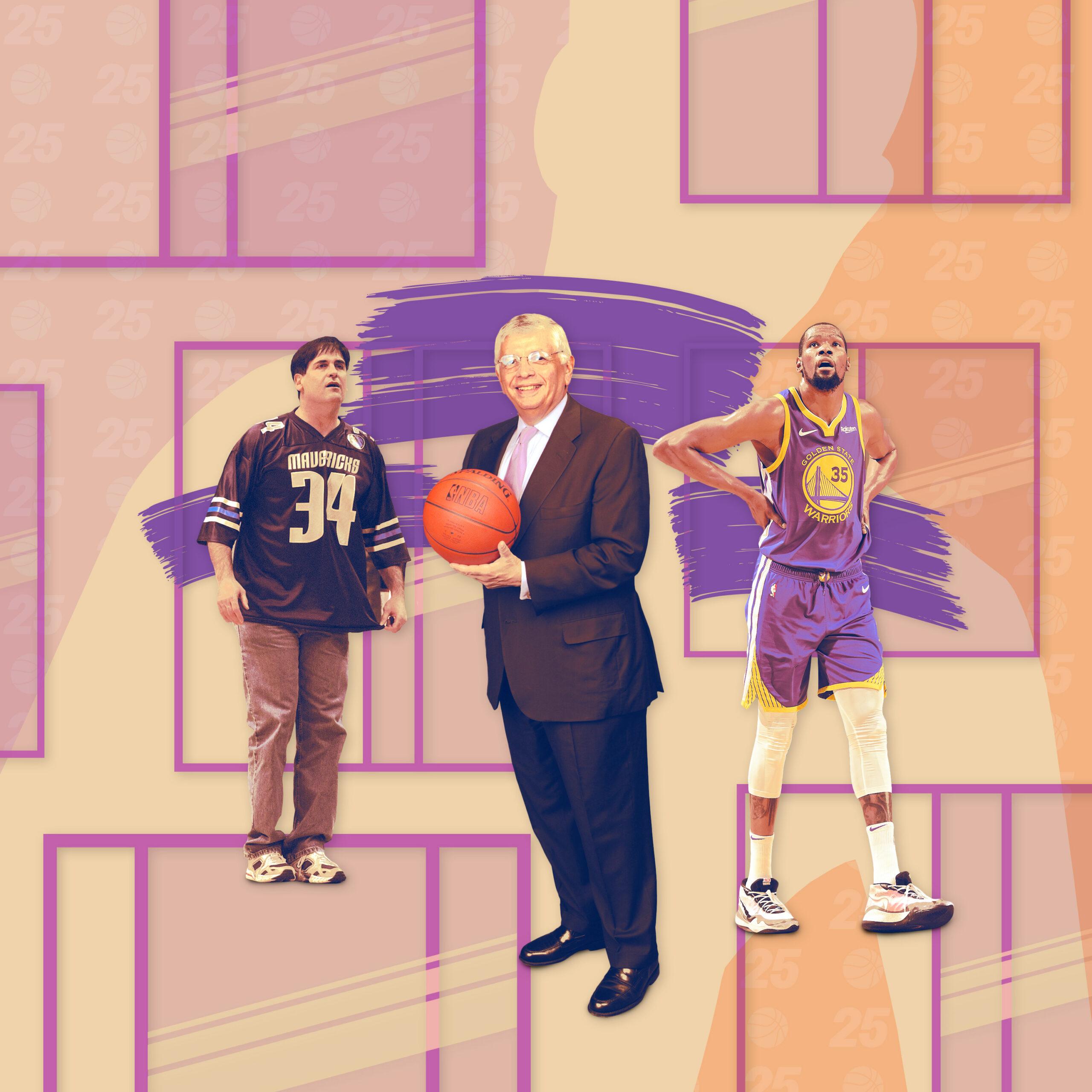
It’s NBA Quarter-Century Week at The Ringer, continuing our site’s yearlong package examining the best of the best—from movie performances to NFL teams to video games—of the past 25 years. This week, we’re focusing on basketball and some of our favorite people and teams lost to time.
The biggest sliding-doors moment of the 20th century happened in London, in 1998, when Helen Quilley got fired, caught an early train home, and found her boyfriend in bed with another woman, a soul-crushing scene that forever changed her life … except, in a parallel timeline, Quilley just missed that same train when the doors slammed shut in front of her, and by the time she got home the other woman was gone, leaving her momentarily oblivious to the affair.
Forget, for a moment, how these two timelines actually played out, or whether Ms. Quilley found happiness in either one, or whether Gwyneth Paltrow nailed the British accent. The truly important thing is that the film Sliding Doors gave us the phrase “sliding doors,” a delightfully useful catchphrase for all the fascinating “what-if” moments in life.
And is there any topic more ripe for what-ifs than pro sports? And is any league more sliding-doorsy than the NBA? Every high draft choice (Oden over Durant), every major free agent decision (hello, LeBron James), and every blown ACL (ugh, Derrick Rose) might dramatically alter the course of league history. What if Bill Walton had stayed healthy? What if Michael Jordan hadn’t retired in 1993 (or unretired in 1995)? What if Shaquille O’Neal hadn’t ditched Orlando for Los Angeles? What if Ray Allen hadn’t hit that corner 3 in Game 6?
As we reach the quarter pole of the 21st century, the NBA has already produced enough sliding doors to stock the entire New York subway system. But today, we wanted to focus on just a handful of the most fascinating and far-reaching moments—the forgotten what-ifs that spawned a dozen others and dramatically and irrevocably altered the NBA over the past 25 years.
We set aside the obvious subsets of draft choices (too many to count) and injuries (too painful). And we ruled out the biggest decision of them all—The Decision—because the reverberations of that one have been exhaustively explored.
But, to that point …
What if—sliding doors alert—James had never left Cleveland in 2010? Does he ever win a title? Does Wade ever get a second ring? Would Derrick Rose and Paul George have won championships? Would the Durant-Westbrook-Harden Thunder have won the 2012 title? Would they have stayed together longer as a result? Would they have stifled the up-and-coming Warriors before Steph and Co. ever got a chance to blossom? The list goes on and on.
In the film, Helen bemoans all the consequences of those train doors slamming shut—she gets assaulted while hailing a cab—and muses, “If I had just caught that bloody train …” In response, her (cheating) boyfriend, Gerry, admonishes, “Well, you don't want to go wondering about things like that—you know, if only this and what if that.”
Sorry, Gerry, but (a) what-ifs are fun, and (b) you’re a creep.
So, without further ado, we present the most fascinating sliding-door moments of the past quarter century …
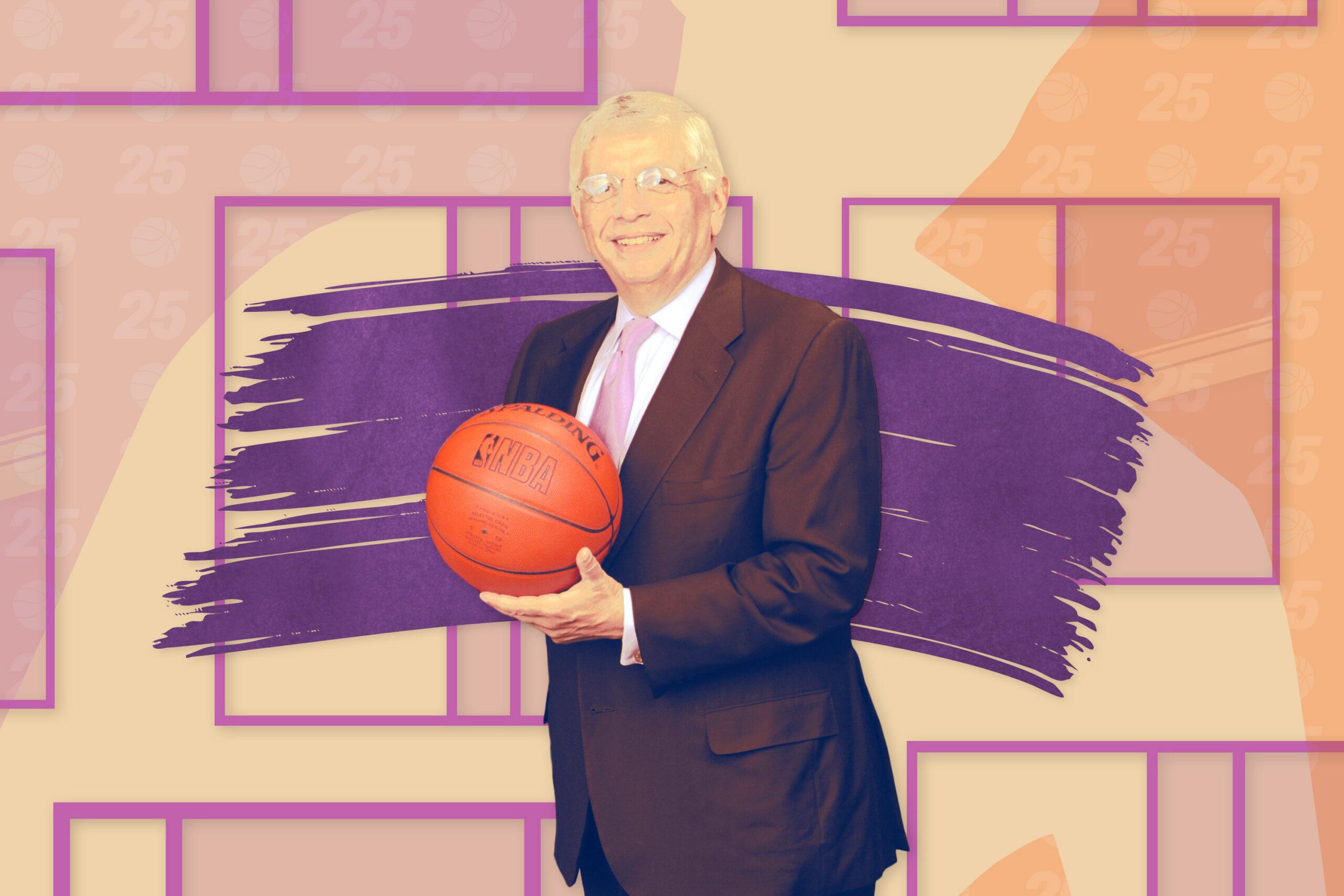
Sliding Door No. 1: The NBA Approves the Charlotte Hornets’ Move to New Orleans in 2002
The context: The Hornets were bleeding attendance and revenue—in large part because Charlotte residents had turned on owner George Shinn amid his sexual assault charges and his admission of two sexual affairs, one with a Hornets cheerleader. The NBA theoretically had a choice: Force Shinn to sell—as penance for the mess he created, and to keep the team in Charlotte—or let him move the team to an unsullied market. Commissioner David Stern and the Board of Governors took the easy path, approving the Hornets’ relocation to New Orleans.
The consequences: The NBA swapped the nation’s 28th-ranked TV market for the 42nd (the league’s smallest at the time), putting the Hornets in an economically challenged city with an iffy NBA fan base, which led to …
- Shinn—claiming massive financial losses and unable to find a buyer—sold the franchise to the NBA’s other 29 owners in 2010, with Stern serving as steward and de facto owner, an unprecedented and massively problematic arrangement, which led to …
- Stern, in his role as “owner,” rejected a proposed trade of Chris Paul to the Lakers in 2011, which became one of the biggest NBA controversies of the 21st century, with conspiracy theorists accusing Stern of caving to small-market (anti-Lakers) owners and Stern infamously citing “basketball reasons” as his rationale, all of which led to …
- Paul was instead traded to the Clippers, where he joined high-flying star Blake Griffin to launch the “Lob City” era, forever transforming the Clippers’ image and altering the fates of …
- The Lakers, who, after failing to land Paul, never found a worthy costar for Kobe Bryant in his final seasons (one playoff series win in his final five years in the NBA), and …
- The Warriors, who lost to the Clippers in the first round in 2014, prompting the club to fire coach Mark Jackson and hire Steve Kerr, whose offense helped turn Steph Curry and the Warriors into champions and eventually a dynasty.
The Hornets also had to play two seasons in Oklahoma City after Hurricane Katrina flooded New Orleans in 2005, planting the seeds for OKC as an NBA city—which it indeed became when the Seattle SuperSonics were sold and relocated there in 2008. Meanwhile, in 2004, the NBA backfilled Charlotte with an expansion team, the Bobcats, a perpetually sad-sack franchise that has been through multiple owners, including Michael Jordan, whose inept stewardship tarnished his reputation as an executive.
The Bobcats eventually rebranded as the Hornets, while the relocated Hornets became the Pelicans, creating one of the most confusing entries in the NBA annals. Charlotte, a thriving NBA market in the 1990s, has never recovered, while New Orleans has forever struggled financially and competitively, losing Paul and then Anthony Davis to trade demands.
The curiosities: What if the NBA had blocked Shinn’s move and forced a sale conditioned on the team remaining in Charlotte? Under better ownership, maybe Paul (a North Carolina native) never would have demanded a trade and would have played the rest of his career there. The trade-veto fiasco never would have happened. Lob City never would have happened. The Clippers never would have beaten the Warriors. Or perhaps Paul would have landed with the Lakers after all, reviving Kobe’s final seasons. The Bobcats never would have existed. And when the time came to add a 30th franchise, the NBA could have awarded it to … Seattle.
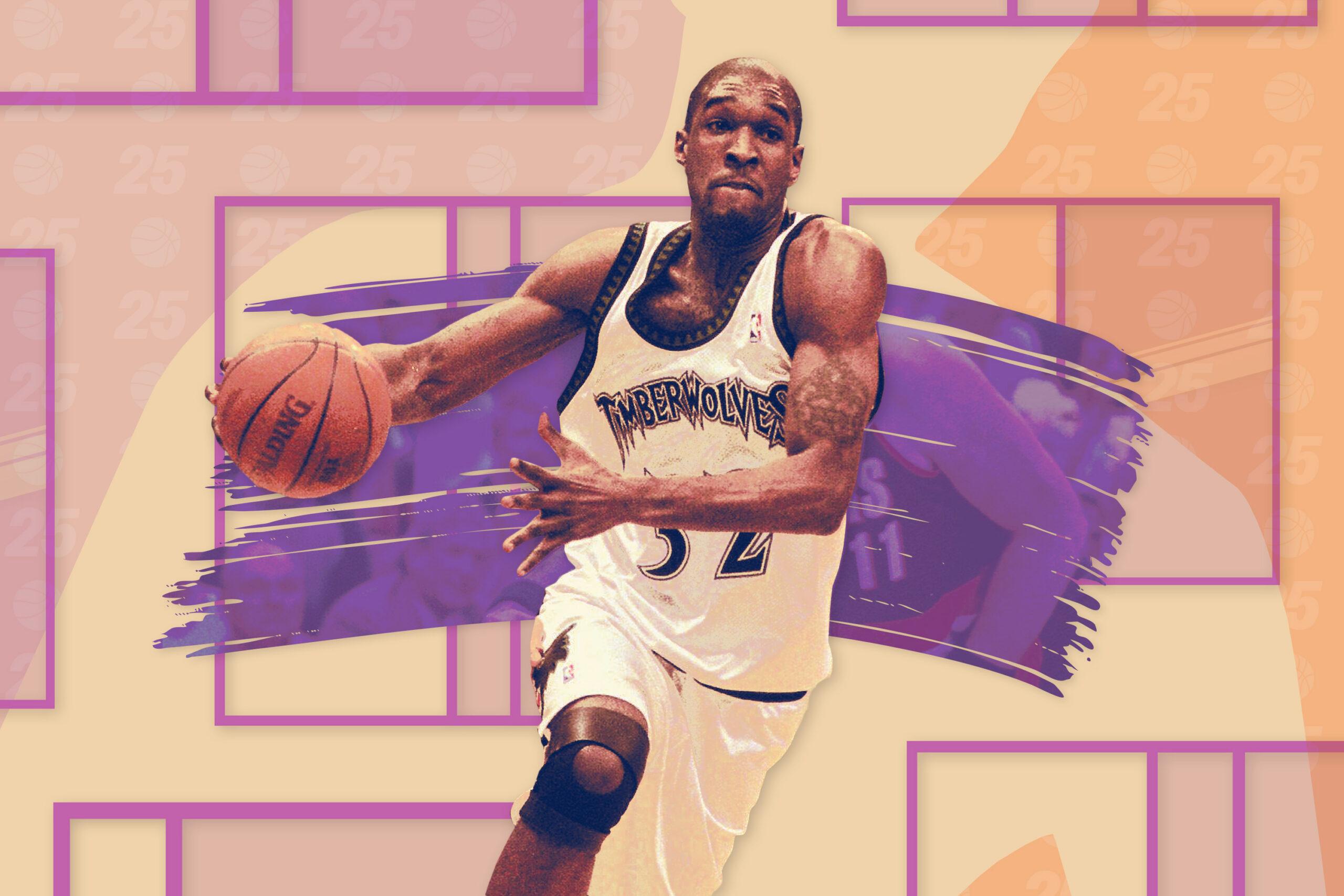
Sliding Door No. 2: The Timberwolves Sign Joe Smith to an Illegal Contract
The context: Joe Smith—a bust after going no. 1 in the 1995 draft, but still a coveted player—signed a wildly below-market $1.75 million, one-year deal with the Timberwolves in 1999. Minnesota desperately needed talent to surround superstar Kevin Garnett, and Smith seemed to fit the bill. As would later be discovered, the Wolves landed Smith by offering him a series of cut-rate one-year deals, with a promise—in writing—that they would reward him with a much bigger payoff, up to $86 million over seven years, once he earned his “Bird” rights. The entire scheme was a clear violation of the NBA’s salary-cap rules, which prohibit any promises (verbal or written) of future earnings.
Yet none of it would have been discovered if not for a second sliding door—a lawsuit filed by player agent Eric Fleisher accusing his former protégé Andy Miller of poaching clients (including Garnett) when Miller left his firm. The illegal Smith contract became public during the discovery phase.
The consequences:
- The revelation of the contract sparked an immediate NBA investigation, which concluded that the Wolves had circumvented the salary cap, in blatant violation of league rules, which led to …
- Stern imposed the harshest punishment in U.S. pro sports history—leading to a lengthy suspension for owner Glen Taylor and a leave of absence for GM Kevin McHale. The NBA also voided Smith's contract and forced the Wolves to forfeit five future first-round draft picks (two of which were restored on appeal)—which led to …
- The Wolves were severely hamstrung for the next several years, with few tools to improve the roster. Despite Garnett’s immense talent, they did not win a playoff series until his ninth season, and his growing frustration ultimately set the stage for …
- The summer of 2007, when the Celtics—having just acquired Ray Allen—convinced Garnett to accept a trade to join Allen and Paul Pierce, thus launching the NBA’s Big Three era and restoring Boston as a premier franchise after 20 years of mediocrity. The Celtics won the 2008 title, making legends of all three stars while altering the fate of several East rivals, chief among them …
- LeBron James, who, after losing to the Celtics in the playoffs in 2008 and 2010, made the fateful Decision to forge his own Big Three in Miami, with Dwyane Wade and Chris Bosh, which sparked a series of (mostly inferior) Big Three copycats throughout the 2010s, including …
- The Knicks, who paired Amar’e Stoudemire with Carmelo Anthony and Tyson Chandler; the Clippers, who for a time had three All-Stars in Chris Paul, Blake Griffin, and DeAndre Jordan; the Nets, who assembled Deron Williams, Joe Johnson, and Brook Lopez; and finally, the Cavaliers, who lured James back to play with Kyrie Irving and Kevin Love—a trio that beat the Warriors’ homegrown Big Three of Curry, Klay Thompson, and Draymond Green (but could not repeat the feat once Golden State forged a Big Four with Kevin Durant).
The curiosities: First, the obvious: What if the Wolves had never signed a secret, illegal deal with Smith? What if—and maybe this is the real sliding door—Fleisher had never sued Miller, causing the contract to become public? If the Wolves had retained all of those picks, would they have built a better roster? Even a contender? Would more success have sated Garnett? Would he have rejected the Celtics’ overtures and stayed in Minnesota? Would the Celtics, without a Big Three, have ever won a title? Would they have traded Pierce? If Boston never got its Big Three, would James have won a championship with the Cavaliers sooner—and therefore stayed put?
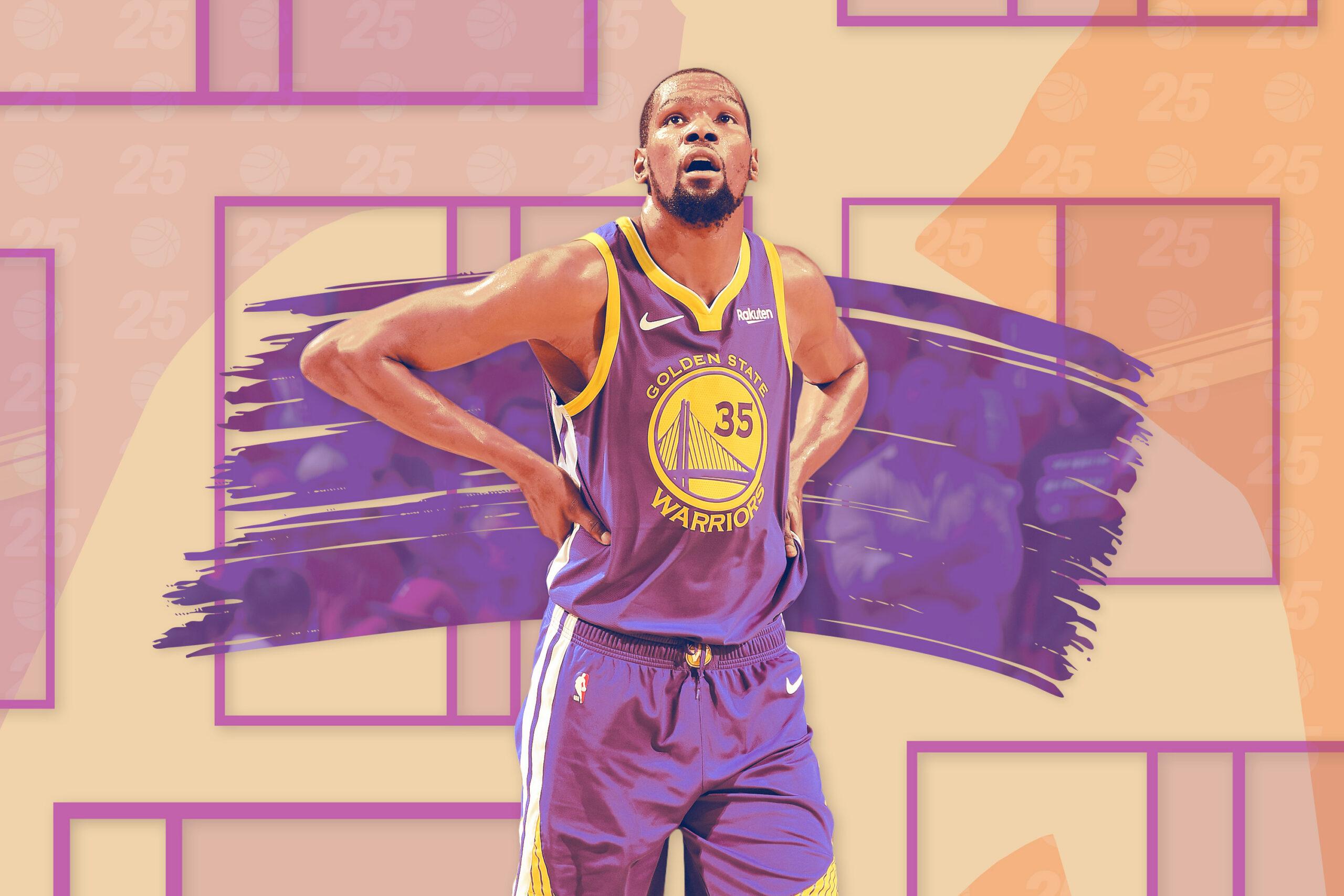
Sliding Door No. 3: The NBA Players Union Rejects “Salary-Cap Smoothing”
The context: Thanks to a generous new national TV deal, the NBA projected a massive increase in revenues and therefore a massive one-year leap in the salary cap in 2016. League officials preferred to phase in the new money to create a steady rise in the cap rather than a one-year spike. However, the players association, under the leadership of president Chris Paul and executive director Michele Roberts, rejected this “cap smoothing” proposal.
The consequences:
- The salary cap spiked to $94.1 million in 2016-17, a 32 percent increase from the prior season ($70 million) and the largest jump in history, which meant that …
- The Warriors—already a championship team with three perennial All-Stars—suddenly had enough room to sign a fourth max player, which allowed them to bring on Durant, who in any other year would have been unavailable to a capped-out team. And this, of course, led to …
- Golden State cruised to back-to-back titles in 2017 and 2018, Durant won back-to-back Finals MVP awards, and the entire world bemoaned the lack of suspense in the title chase. The Warriors’ dominance claimed many victims, among them …
- LeBron, who lost to the Curry-Durant tandem in the 2017 and 2018 Finals; James Harden and Paul, whose Houston Rockets might have made the Finals in 2018 and 2019 if not for the Warriors’ wealth of talent; and of course, the Thunder, who plummeted from title contender to fringe playoff team, although that did benefit …
- Russell Westbrook, who became OKC’s singular driving force, a triple-double machine, and a sympathetic figure who won MVP in 2017 because he kept the Thunder competitive (47 wins) despite Durant’s departure.
- Losing back-to-back Finals surely pushed LeBron to leave Cleveland again, which he did in 2018, when he joined the Lakers, which led to …
- Anthony Davis, who shared the same agent as James, demanded a trade from New Orleans to L.A., a request that was granted in 2019, which in turn led to …
- The Lakers won the championship in 2020, giving James his fourth ring and fourth Finals MVP trophy (and denying his old team, the Heat, from winning another).
- The spike did not work out so well for all the teams that, flush with extra cap room, wildly overspent on role players and screwed up their payrolls for years to come. These included the Grizzlies (Chandler Parsons), Lakers (Timofey Mozgov and Luol Deng), Knicks (Joakim Noah), Blazers (Evan Turner and Allen Crabbe), and Wizards (Ian Mahinmi).
The curiosities: What if the union had agreed to cap smoothing? Would Durant have instead joined one of the other teams he met with that summer—the Celtics, Spurs, or Heat—or would he have perhaps stayed in OKC with Westbrook? Would the Thunder have won a title? Or multiple? Without Durant, would Curry and the Warriors have ever won another one? Would Harden and Paul have won it all with the Rockets in 2018? Or would LeBron have won back-to-back titles with the Cavs in 2017 and 2018? And if so, would he have stayed in Cleveland to finish his career?
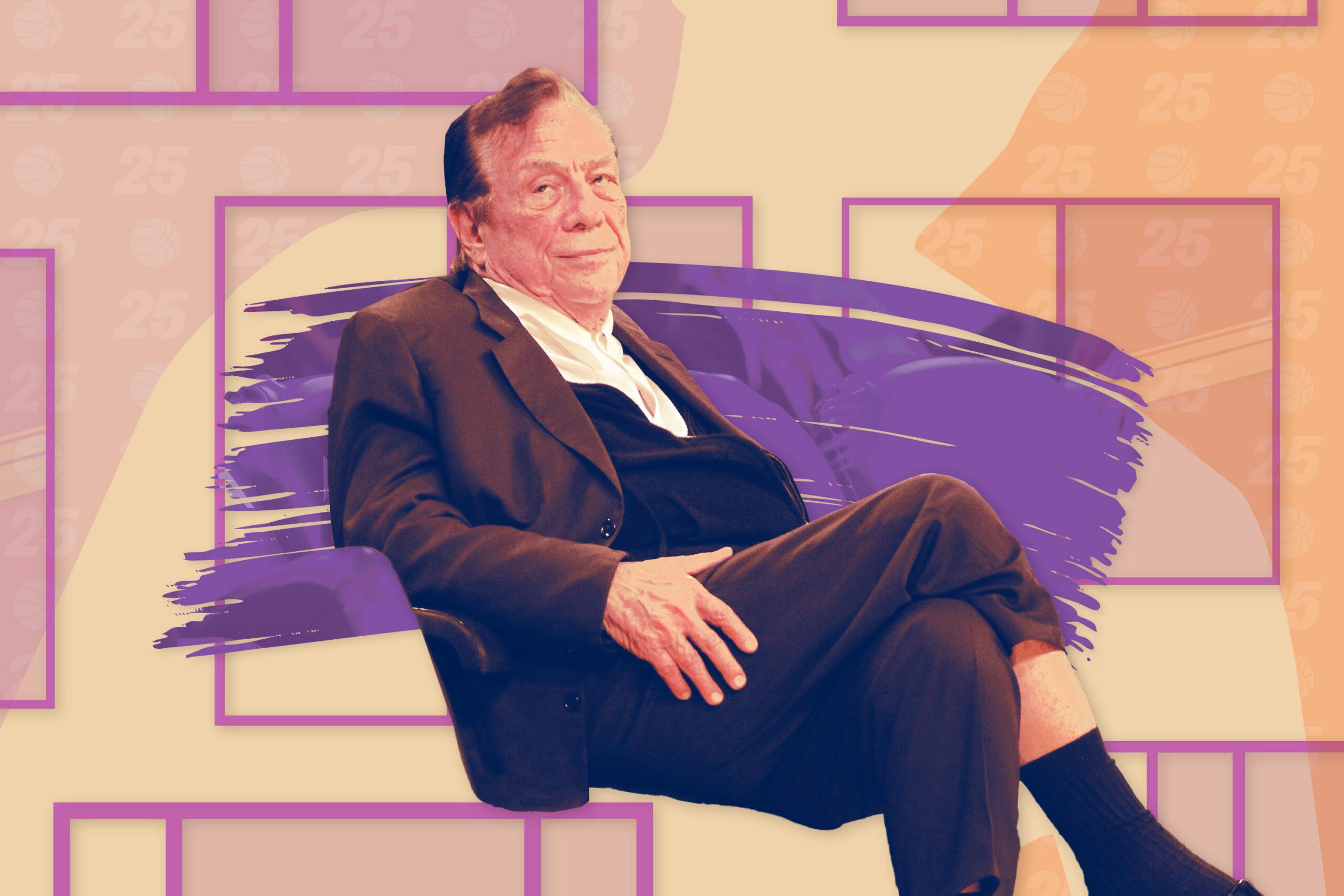
Sliding Door No. 4: The Donald Sterling Tapes Are Leaked to TMZ
The context: Sterling, the longtime Clippers owner, made a series of racist remarks in a taped phone conversation with his girlfriend, V. Stiviano. That tape was leaked to TMZ in April 2014, setting off a national firestorm.
The consequences:
- With sponsors fleeing and players threatening a boycott, commissioner Adam Silver acted swiftly, banning Sterling from the NBA for life and recommending that he be forced to sell the team. With the help of Sterling’s estranged wife (and the team’s co-owner), Shelly Sterling, the NBA successfully pushed Donald out, which led to …
- Steve Ballmer, the former Microsoft CEO and one of the world’s wealthiest individuals, purchased the franchise for a then-record $2 billion, which led to …
- The Clippers instantly transformed from one of pro sports’ cheapest, worst-run franchises into one of its best, wealthiest, and most aggressive, which in turn …
- Made the Clips a destination team for marquee stars for the first time in the franchise’s history, a dramatic shift underscored by …
- The twin acquisitions of two-time Finals MVP Kawhi Leonard and perennial All-Star Paul George in July 2019, a landmark moment for the franchise, which also meant …
- For the first time ever, the Lakers had true competition for elite players who wanted to play in Los Angeles. Both Leonard and George had declined overtures from the Lakers before landing with the Clippers, a trend that was further highlighted in 2023, when …
- L.A. native James Harden, who wanted to play in his hometown, asked the Sixers to trade him to the Clippers.
- Ballmer’s largesse also played a role in the hiring of Tyronn Lue (a former Laker) as head coach in 2020, a year after the Lakers reportedly lowballed him.
- Along the way, Ballmer proposed, funded, and built the $2 billion Intuit Dome in Inglewood, giving the Clippers their own home for the first time—and a new level of prestige. The arena will host the NBA All-Star Game in 2026.
- The Sterling saga, which unfolded just months after Silver succeeded Stern, helped shape an image of Silver that endures to this day—of a decisive, principled leader who valued player input, is sensitive to public opinion, and won’t hesitate to put broader league interests ahead of any individual owner.
The curiosities: What if Stiviano had never taped Sterling or the tapes had never been leaked? Without documented evidence of his racism, he’d likely have kept running the Clippers (and badly). There would be no Intuit Dome and no emerging rivalry with the Lakers. The Clippers probably would not have landed Leonard and George … which means that the George trade might never have happened … which means that Shai Gilgeous-Alexander would likely be starring for the Clippers right now and the Thunder almost certainly would not have won the 2025 championship. In that alternate timeline, Leonard might well have landed with the Lakers in 2019, alongside James and Davis, making them a contender for years to come. On the plus side: If Leonard had never landed with the Clippers, there would be no cap-circumvention investigation dogging them today. (The downside: There would be nothing for Pablo Torre Finds Out to find out, and we would have had no NBA news to discuss for the last month of the offseason.)
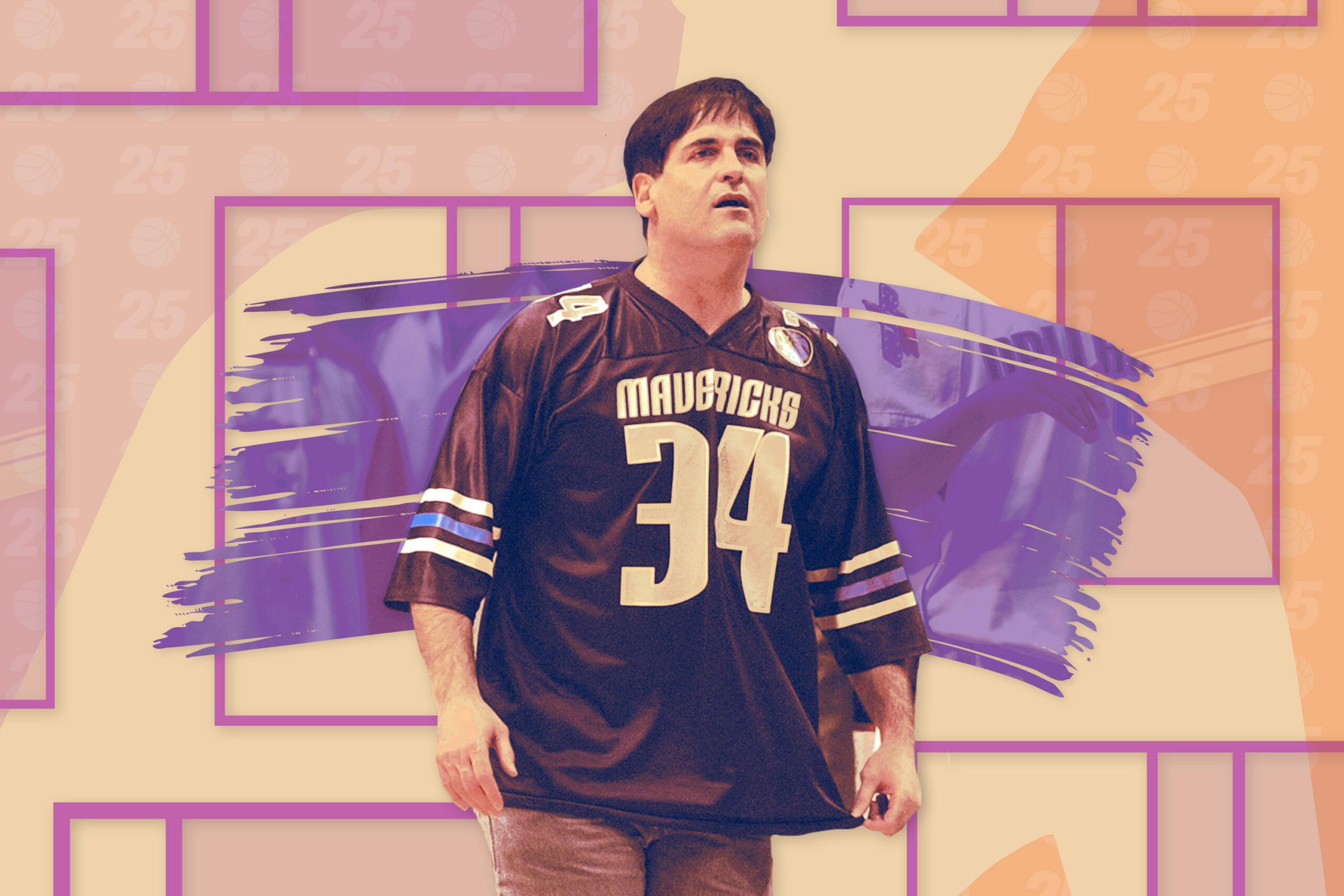
Sliding Door No. 5: Mark Cuban Balks and Lets Steve Nash Leave Dallas for Phoenix
The context: Nash was a two-time All-Star, but not yet a superstar, when he reached free agency in the summer of 2004. The Suns offered a six-year, $65 million deal, which Nash accepted after Mavericks owner Mark Cuban declined to match it, citing Nash’s age (30) and health concerns.
The consequences:
- In Phoenix, Nash joined Mike D’Antoni, the newly installed head coach, whose run-and-gun, 3-point-heavy “Seven Seconds or Less” offense proved to be the perfect setting for Nash to thrive in, which led to …
- The Suns leaped from being a lottery team to having a 62-win season and going on a run to the 2005 Western Conference finals, which in turn …
- Earned Nash the first of two consecutive MVP awards, earned D’Antoni his first Coach of the Year award, and earned GM Bryan Colangelo his first Executive of the Year award, but more importantly …
- Made the Suns one of the most electrifying teams of the era, averaging 58 wins over four seasons, with two trips to the conference finals over that span, which in turn …
- Prompted more teams to embrace up-tempo, free-flowing offense and more voluminous 3-point shooting, a trend aided by the emergence of the analytics movement, which helped convince coaches and GMs that teams could win with that style, which, of course, led to …
- The modern pace-and-space revolution that defines the modern NBA, with Nash and the Suns providing a proof of concept for the Warriors and nearly every other dominant team of the past decade.
The curiosities: What if Cuban had met Nash’s contract demands in 2004? Would the Suns, without Nash, ever have achieved as much success? Would D’Antoni’s offensive philosophies have taken root? Might the NBA look vastly different today? Or would some other team (Curry’s Warriors?) have provided the template instead? Without the wild success in Phoenix, could D’Antoni have landed prime jobs later with the Knicks, Lakers, and Rockets? Would Nash have reached the same heights in Dallas as he did in Phoenix? Would Nash and best pal Dirk Nowitzki have beaten the Miami Heat in the 2006 Finals? Would they have won multiple titles together?

